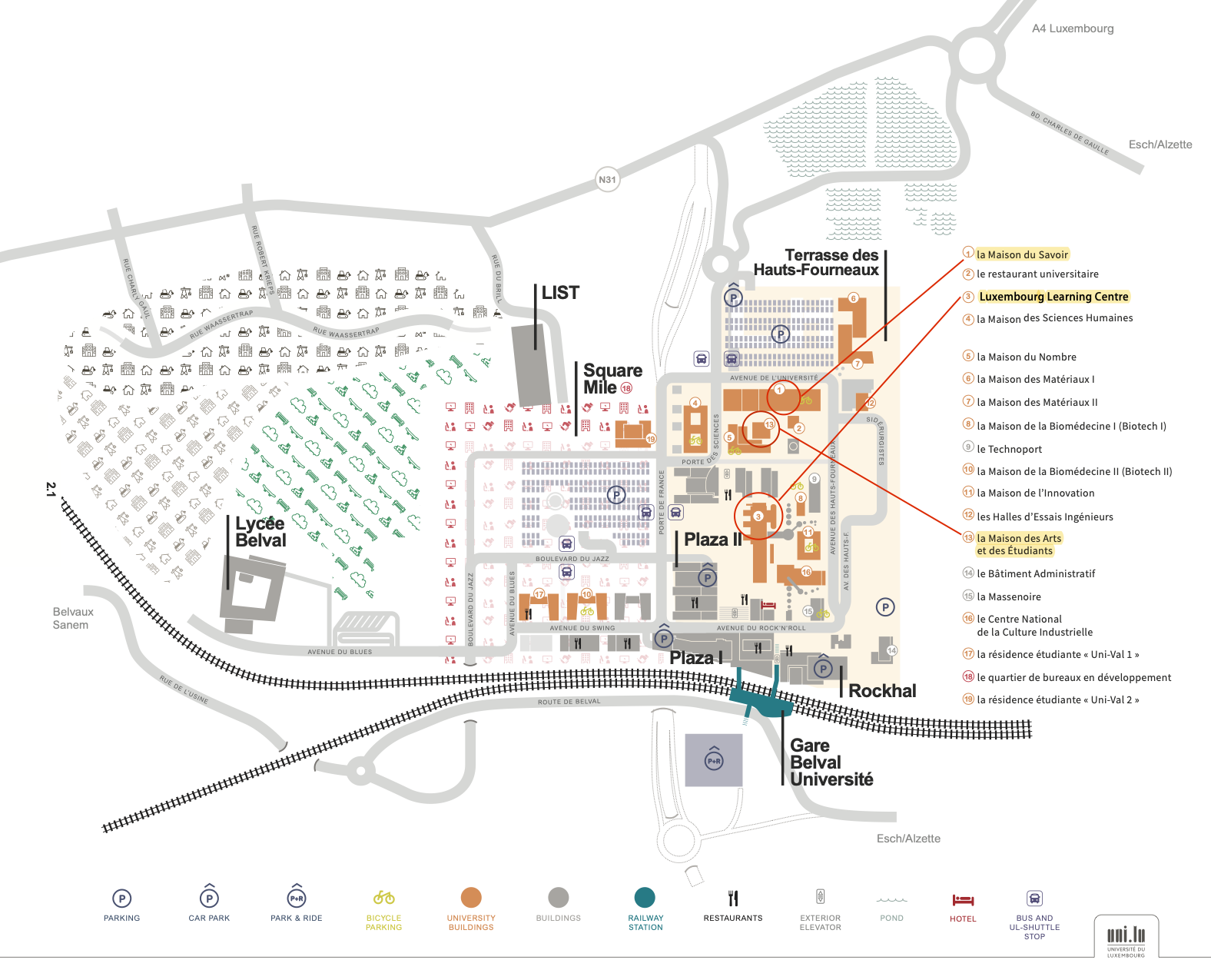About the University
Founded in 2003, the University of Luxembourg is the only public university of the Grand Duchy of Luxembourg.
Multilingual, international and research-oriented, it is also a modern institution with a personal atmosphere.
About us
- Founded in 2003
- Multilingual, international, research-oriented
- 850 scientific and research staff supporting 242 professors, assistant
- professors and lecturers in their teaching
- Close to the European institutions and to Luxembourg’s financial centre
Three faculties, three interdisciplinary centres
- The Faculty of Science, Technology and Medicine (FSTM)
- The Faculty of Law, Economics and Finance (FDEF)
- The Faculty of Humanities, Education and Social Sciences (FHSE)
- The Interdisciplinary Centre for Security, Reliability and Trust (SnT)
- The Luxembourg Centre for Systems Biomedicine (LCSB)
- Luxembourg Centre for Contemporary and Digital History (C²DH)
Studies
- 14 bachelor degrees, 42 master degrees and doctoral education based on the Bologna Accords
- 16 vocational training and lifelong learning training courses
- Bachelor students have to spend one semester abroad
- Multilingualism: programmes generally taught in two languages
- French/English or French/German, some in three and some entirely taught in English
- Academic staff originates from 20 different countries
- 6,423 students originating from 125 different countries
Research
- Supporting 6 existing pillars of excellence & growing cross-disciplinary themes
- 13 departments
- 7 endowed chairs
- 4 doctoral schools
The sites
The University is on three sites: Belval Campus, Kirchberg Campus and Limpertsberg Campus

